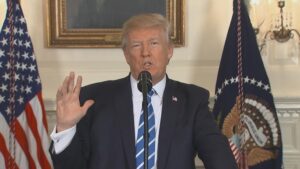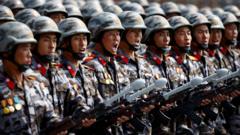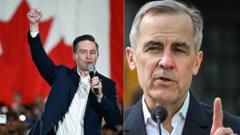In a recent statement, German Defence Minister Boris Pistorius urged Ukraine to refrain from accepting extensive territorial concessions to secure a ceasefire with Russia, countering suggestions from US President Donald Trump. While both sides explore potential peace terms, Ukraine's government remains adamantly opposed to conceding land, particularly Crimea, as negotiations continue to evolve.
German Defence Minister Cautions Ukraine Against Territorial Concessions in Peace Negotiations

German Defence Minister Cautions Ukraine Against Territorial Concessions in Peace Negotiations
Germany's defense minister cautions Ukraine about potential territorial concessions in ongoing peace talks with Russia amid contrasting US proposals.
Germany's Defence Minister Boris Pistorius has issued a strong warning to Ukraine regarding ongoing negotiations with Russia, advising against agreeing to any substantial territorial concessions in exchange for a ceasefire. He emphasized that Ukraine should not entertain a recent proposal from US President Donald Trump, which he described as tantamount to “capitulation.” According to reports, this proposal includes demands for Ukraine to relinquish significant portions of territory currently occupied by Russia, including Crimea.
Pistorius made his remarks during an interview with German public broadcaster ARD, where he highlighted that while Ukraine might have to contemplate giving up some land for peace, the concessions outlined in Trump's recent proposition were excessive. He pointed out that the terms offered could have been more favorable to Ukraine a year ago and criticized the lack of tangible benefits in the proposal.
The details of the latest US initiative remain somewhat unclear; however, recent reports indicate it includes a legal acknowledgment of Russia’s annexation of Crimea and de facto recognition of Russian control over additional occupied territories, such as Luhansk. In contrast, proposals from Europe and Ukraine assert that discussions over occupied land should only commence after a ceasefire is implemented.
Furthermore, the US plan reportedly excludes Ukraine from NATO membership and suggests that security guarantees post-ceasefire would be managed by a UK-France coalition, distinct from direct US involvement. European leaders have called for significant commitments from the US to defend Ukraine in the event of future aggression, seeking assurances akin to a robust NATO alliance pledge.
Compounding the complexities, President Trump recently allocated blame to Kyiv for instigating the conflict, citing its NATO ambitions, and affirmed that Crimea would remain under Russian control. Meanwhile, US Secretary of State Marco Rubio has pressed for expedited peace negotiations, highlighting the urgency of resolving the conflict without prolonging diplomatic efforts.
Encapsulating the impact of the ongoing war, Russia currently occupies nearly 20% of Ukrainian territory, following the full-scale invasion launched in 2022. As both sides navigate the delicate landscape of negotiations, the dialogues surrounding territorial concessions remain a pivotal point of contention, shaping the future of Ukraine's sovereignty and regional stability.




















